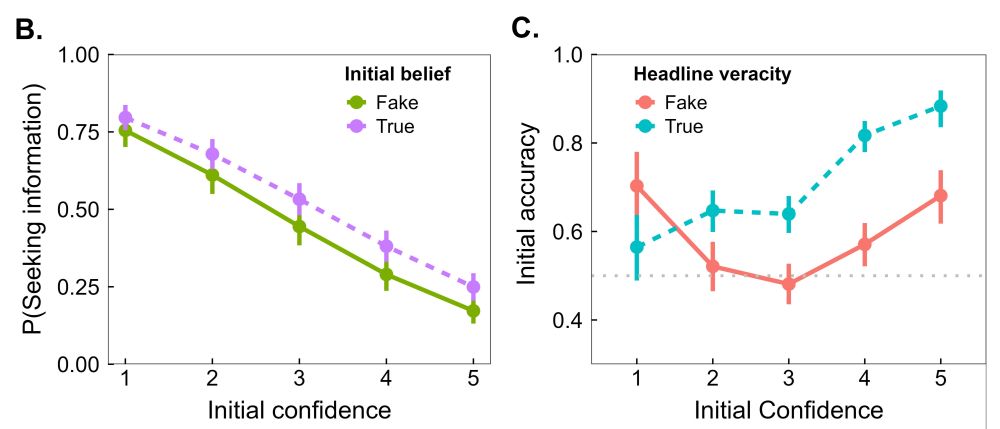
❗Issue 1: confidence for fake news items does not reliably reflect accuracy (plot C), thus failing to drive information seeking towards the least accurate items. (4/6)

❗Issue 1: confidence for fake news items does not reliably reflect accuracy (plot C), thus failing to drive information seeking towards the least accurate items. (4/6)





